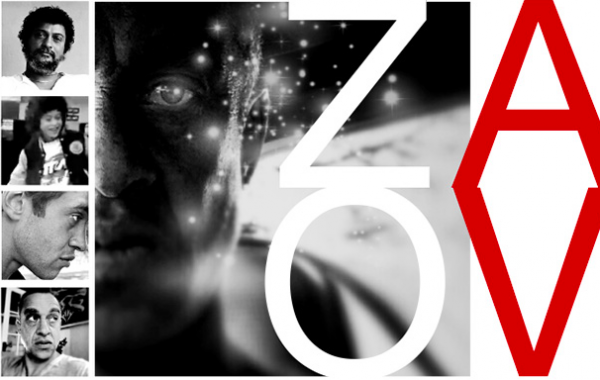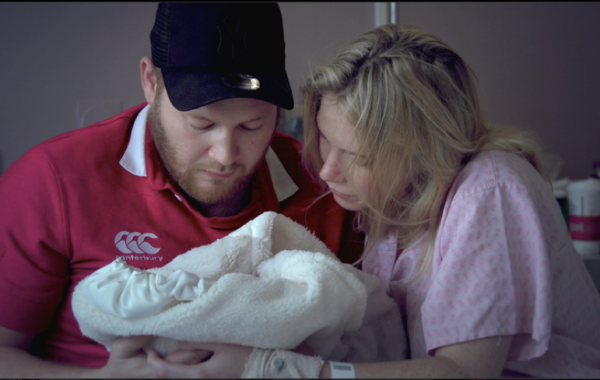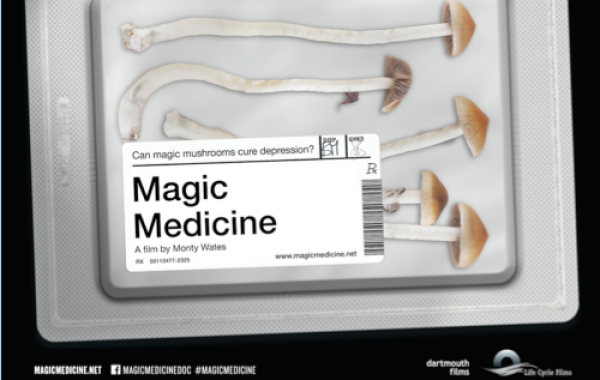Can magic mushrooms cure depression?
New documentary Magic Medicine, follows three volunteers through the world’s first medical trial of psilocybin to treat depression
Ladbury is thrilled to be working with pioneers of British independent documentary making, Dartmouth Films. This powerful new film follows an unprecedented trial at Imperial College London. Supporters including Baroness Meacher calling for reclassification to allow urgently needed research following the trial.
Over two years, filmmaker Monty Wates was given exclusive access to the first ever medical trial to give psilocybin, the psychoactive ingredient in magic mushrooms, to a group of volunteers suffering from clinical depression. His powerful feature-length documentary, Magic Medicine, reveals the deeply moving stories of three of these volunteers and their families, and the ambitious team running the ground-breaking trial at Imperial College London (ICL) who are hoping their controversial treatment will ultimately be made freely available on the NHS.
Current statistics show that 1 in 10 of us will suffer from depression, however, around 50% of these people won’t respond to antidepressants, leading to the inevitable outcome that currently, 1 in 6 of depressed people go on to kill themselves. A new approach is desperately needed. According to trial lead Dr. Robin Cahart-Harris, Head of Psychedelic Research Group, Centre for Psychiatry, ICL, who is the film, psychedelics like psilocybin have the potential to “revolutionise depression treatment, if not psychiatry.”
Though the trial will throw them into unchartered territory, for the three volunteers whose depression has been diagnosed as untreatable, it feels like the last chance. Through deeply moving personal testimony the film follows their emotional and psychological journeys through their ‘trips’ and in the weeks and months that follow as they reflect on their experiences.
Volunteer John who lives in Scotland, has tried numerous anti-depressants but nothing has worked. He’s deeply aware of the immense strain his condition puts on his wife Maggie and two children and wants to “find a way to change” whilst Maggie desperately longs to return to the life they shared before his illness. Though the trial awakens troubling childhood memories, John feels enthused and excited about the possibilities ahead and ‘a rare day out together’ gives the family a glimpse of the man they knew before his illness.
Volunteer Andy, a former scientist, has battled with depression since an enforced job change thirteen years ago. For him, the experience of taking psilocybin proves extremely intense and “one hell of a battle”. Supported by his wife Yvonne Andy is left with a profound sense that “a real change has occurred” though not in the way he first imagined as he is forced to re-examine his past.
Over the past thirty years, volunteer Mark has tried over 30 types of prescription drugs though he says none have any significant effect on his depression. For him, the trial is a chance to discover if this new radical treatment may help control his condition where conventional medicine has failed.
It’s been a long journey for the research team. It took three years to obtain the necessary permissions to carry out the trial given psilocybin’s, current classification as an illegal Schedule 1 drug. The experience of undertaking the trial leaves them both elated by the possibilities it suggests and frustrated by the limitations placed on them by the current regulatory structure. Until this trial, there had been no meaningful medical research into the potential of psychedelics, since outrage at their widespread recreational use in the 1960s led to them becoming illegal under the Misuse of Drugs Act in 1971 and classified as Schedule 1. As Baroness Meacher, co-chair, Parliamentary Group for Drug Reform Policy laments in the film, it is this categorisation that has “discouraged any research into their medical value”
For Prof. David Nutt, Head of Neuropharmacology, ICL who oversaw the trial, the urgent need for more research is clear. “Every week thousands of people who could benefit from interventions with these drugs are denied them,” he says, “that is outrageous. There is no need to limit access to these drugs for medical research, but the current regulation makes it almost impossible for anyone to use them clinically”.
Magic Medicine is a sensitive and absorbing portrayal of the human cost of depression, and the inspirational people contributing to ground-breaking psychedelic research.
The film was made Monty Wates for Life Cycle Films and the Executive Producer is Lizzie Gillett. magicmedicine.net
Featured Work

Zak Ové
View Details
TIME’S UP UK
View Details
Channel 4
View Details


